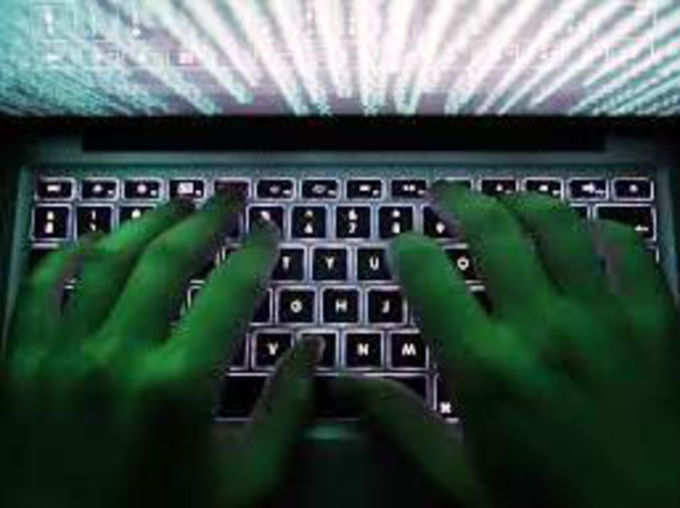
Yes, this is official. The Big Brothers are going to hack you lock, stock and barrel, even when you are on the right side of the law and doing nothing more harmful than playing your favourite game. Well, for a change, they are not government agents, but millions of gaming-focused
malware (masterminded by humans, of course) that attack unsuspecting gamers. In fact, the year 2013 has witnessed a giant leap in the number of
cyber attacks aimed at gamers, with
India alone accounting for 2,07,245 attempts, says
Kaspersky Labs, one of the world’s top 4 cyber security solutions providers.
Kaspersky has detected some 4.6 million pieces of malware, which accounted for more than 11.7 million attacks globally. On an average, users are hit by 34,000 attacks from
gaming malware daily. With the
Christmas and the holiday season just around the corner, the malware attacks can rise even more as most of us love to play games as soon as we get some spare time. Considering that the
PlayStation 4 and the
Xbox One are scheduled to be launched in India soon, the situation can get even more alarming.
“Gaming has an ever increasing fan base, which also means that the number of potential victims of
cyber criminals is rising. Cyber criminals are putting a lot of effort into their attacks and we can see the upsurge in sophistication. Especially in times like Christmas, when a lot of new games are being released, gamers need to be attentive stay secure,” says Christian Funk, senior virus analyst of the lab’s global research & analysis team.
Who suffers most? The Russians, according to Kaspersky’s findings. Globally, Russian gamers are worst hit in 2013 as hackers have made 88,13,050 attempts on them.
Vietnam records 5,03,947 attempts,
China is third with 3,76,058 and India comes in fourth. Here’s a look at the global top 10:
Russian Federation: 88,13,050
Vietnam: 5,03,947
China: 3,76,058
India: 2,07,245
Spain: 1,39,078
Poland: 1,27,583
Turkey: 1,21,164
Taiwan: 97,843
Thailand: 92,914
Italy: 75,155
How it is happening We all know the basics although the underlying framework happens to be extremely intricate. Simply put, the more time you spend on games, the more you will be exposed to different types of
digital attacks. Very often, underground forums are full of cyber criminals who sell access to people’s
gaming accounts. There are
markets for usernames and passwords, and attacks on the
gaming companies themselves may result into your valuable data getting stolen.
Another popular tactic is to lure gamers with false promises.
Malware pieces often target specific games, especially those which are hugely popular with millions of users. According to Kaspersky, games such as
Minecraft and
Grand Theft Auto V have witnessed this kind of hacking in 2013. For instance, a fake Minecraft tool built with Java promised to provide players with unprecedented powers such as banning other users, but it was actually stealing usernames and passwords in the background. Also, when Grand Theft Auto V landed this year, various sites promised free downloads. But when users tried to download it for free, only some malware got downloaded onto their systems.
Phishing is also a common practice and tonnes of e-mail messages are sent out whenever a big launch happens. These messages typically ask for
sensitive data or money while promising great deals and discounts.
Five tips to stay safe Although one can’t completely block out malicious attacks, there are ways to lessen
hacking risks. Here are five must-follow tips to stay safe from now on.
Don’t fall for offers that sound too good to be true. We all know there’s nothing called free lunch and those in the gaming business are here to make money, after all. Therefore, don’t fall for once-in-a-lifetime kind of offers and start clicking
suspicious links. If an offer looks really genuine, double-check with the site/company/authorities before hitting a link or handing over any information.
Only download titles from authorised sellers. If you are downloading illegal copies of games, you are not only breaking the law but also compromising your system. Cyber criminals often disguise malware as
game files to access your data.
Use strong and unique password to keep each gaming account safe. That’s a precaution most of us take to protect different mail accounts. A
strong password is difficult to hack but in case it is stolen, your other accounts will be safe as each of them has a different password and can’t be hacked en masse. Also, get a
password manager that offers smart protection.
Anti-virus helps.
Get the best one, if possible, and keep it updated round the clock. That’s one of the sure-fire ways to keep gaming malware at bay. Kaspersky says that you will need AV that goes beyond signature-based detection to look at file reputation, if you want to stop the smartest malware getting onto your system.
Stay away from over-curious strangers.
Once again, a must-follow rule from offline life. It is easy to be misled in the virtual world – so stay away from people who make friends too quickly and start asking personal details.
